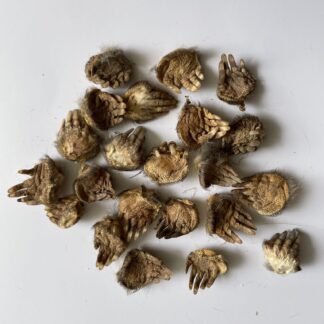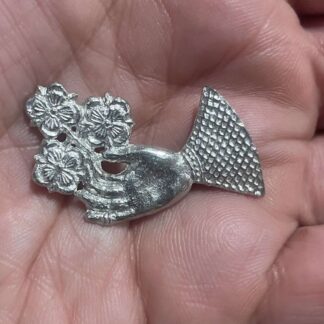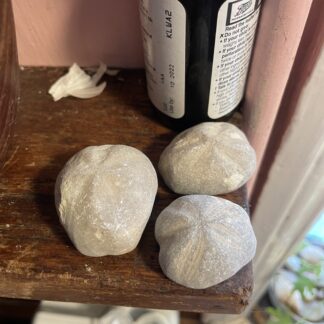Medieval Melusine Badge – Part King, Part Fairy, Part Serpent
£8.00
Pewter replica of a 15th Century Melusine Badge – approx 4cm long
Wikipedia says Melusine is one of the pre-Christian water-faeries who were sometimes responsible for changelings. The “Lady of the Lake“, who spirited away the infant Lancelot and raised the child, was such a water nymph.
A folktale tradition of a demon wife similar to Melusine appears in early English literature. According to the chronicler Gerald of Wales, Richard I of England was fond of telling a tale that he was a descendant of an unnamed countess of Anjou. In the legend, an early Count of Anjou encountered a beautiful woman from a foreign land. They were married and had four sons. However, the count became troubled because his wife only attended church infrequently, and always left in the middle of Mass. One day he had four of his men forcibly restrain his wife as she rose to leave the church. She evaded the men and, in full view of the congregation, flew out of the church through its highest window. She carried her two youngest sons away with her. One of the remaining sons was the ancestor of the later Counts of Anjou, their troublesome nature being the result of their demonic background.
A similar story became attached to Eleanor of Aquitaine, as seen in the 14th-century romance Richard Coer de Lyon. In this fantastical account, Henry II’s wife is not named Eleanor but Cassodorien, and she always leaves Mass before the elevation of the Host. They have three children: Richard, John, and a daughter named Topyas. When Henry forces Cassodorien to stay in Mass, she flies through the roof of the church carrying her daughter, never to be seen again
Available on backorder
Description
Mélusine (French: [melyzin]) or Melusina is a figure of European folklore, a female spirit of fresh water in a holy well or river. She is usually depicted as a woman who is a serpent or fish from the waist down (much like a lamia or a mermaid). She is also sometimes illustrated with wings, two tails, or both. Her legends are especially connected with the northern and western areas of France, Luxembourg, and the Low Countries.
The Limburg-Luxemburg dynasty (which ruled the Holy Roman Empire from 1308 to 1437 as well as Bohemia and Hungary), the House of Anjou and their descendants the House of Plantagenet (kings of England), and the French House of Lusignan (kings of Cyprus from 1205–1472, and for shorter periods over Cilician Armenia and Jerusalem) are said in folk tales and medieval literature to be descended from Melusine. The story combines several major legendary themes, such as the water nymph or mermaid, the earth being (terroir), the genius or guardian spirit of a location, the succubus who comes from the diabolical world to unite carnally with a man, or the banshee or harbinger of death.




